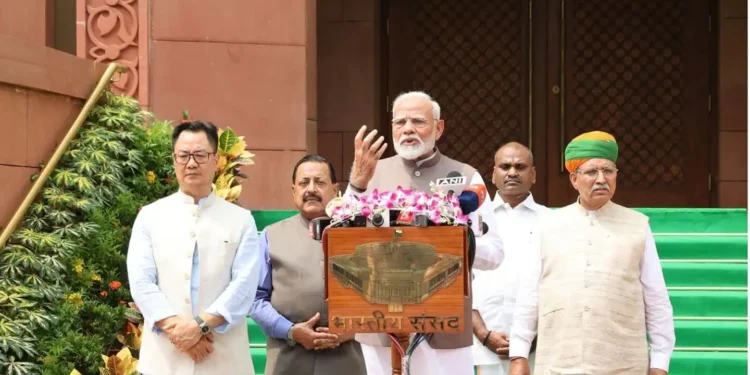Lagatar24 Desk
New Delhi: Prime Minister Narendra Modi on Friday described the passage of the Waqf (Amendment) Bill, 2025, as a “watershed moment” in India’s pursuit of socio-economic justice and inclusive development. The bill, along with the complementary Mussalman Wakf (Repeal) Bill, 2025, was cleared by both Houses of Parliament after intense debate.
The Rajya Sabha passed the Waqf Bill following a marathon 13-hour discussion, with 128 votes in favor and 95 against. Earlier, the Lok Sabha had approved the bill with 288 votes supporting it and 232 opposing.
In a post on social media platform X, PM Modi stated that the legislation is designed to benefit marginalized communities, particularly Muslim women and underprivileged groups such as Pasmanda Muslims. “The passage of the Waqf (Amendment) Bill and the Mussalman Wakf (Repeal) Bill by both Houses of Parliament marks a watershed moment in our collective quest for socio-economic justice, transparency and inclusive growth,” Modi wrote.
He extended gratitude to parliamentarians for their contributions to the discussion and acknowledged the inputs received by the Parliamentary committee from the public.
Modi criticized the existing Waqf framework for its lack of transparency and accountability, asserting that it often worked against the interests of disadvantaged Muslims. “These legislations will enhance transparency and safeguard rights that were previously denied,” he said.
The Prime Minister added that the new legal framework represents a move toward modern governance aligned with principles of social justice. “We remain committed to prioritising the dignity of every citizen. This is how we build a stronger, more inclusive and compassionate India,” he remarked.
Despite the government’s optimistic framing, the Waqf Bill faced significant backlash from opposition parties under the INDIA bloc, including Congress, TMC, and DMK. They labeled the legislation “anti-Muslim” and claimed it aimed to facilitate the takeover of Muslim-owned properties for corporate benefit.
The government has consistently defended the bill as a transformative reform aimed at empowering minorities and promoting equity.







